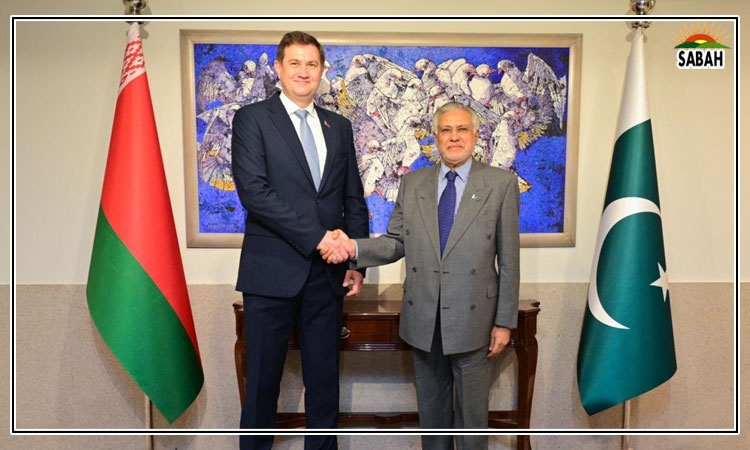Israel’s questionable legitimacy…Dr Moonis Ahmar
In an unprecedented move to mend fences with Saudi Arabia, Israeli Tourism Minister Haim Katz paid a two-day visit to Riyadh to attend a United Nations World Tourism Organization meeting. The Israeli tourism ministry commented that, as the first Israeli minister to head an official delegation in Saudi Arabia, Katz used that opportunity to hold meetings with his Saudi counterpart. Earlier, Israeli Foreign Minister Eli Cohen, while talking to Kan News, expressed the hope that following an agreement with Saudi Arabia, six or seven Muslim countries could make peace with Israel.
Since its inception in 1948, the controversial state of Israel has been in search of global legitimacy. Till 1991, a majority of the UN members had no diplomatic relations with Israel but after the end of the cold war in 1991 and the PLO-Israeli accord of September 1993 there was a paradigm shift which witnessed Russia, China and other countries granting legitimacy to Israel. Now, Israel wants its diplomatic legitimacy to come full circle by seeking recognition from all the Arab and Muslim countries.
Peace between Israel and Saudi Arabia may witness the signing of Abraham-II accord and may pave the way for a sea change in granting much desired legitimacy to the Jewish state. Abraham-I accord was signed with the facilitation of the then American President Donald Trump in 2020 which paved the way for establishing Israels diplomatic relations with the UAE, Qatar and Bahrain. Later on Morocco and Sudan also joined Abraham-I accord and now Saudi Arabia is thinking in terms of mending fences with the Jewish state.
In order to placate sentiments in the Arab/Muslim world in the event of Saudi Arabia recognising Israel, Riyadh has decided to appoint Nayef al Sudairi as non-resident ambassador to Palestinian territories. Nayef visited Ramallah and held a meeting with Palestinian President Mahmud Abbas. Saudi Arabia assured Palestinians of its support based on its 2002 peace plan (also adopted by the Arab League) under which Israel was asked to withdraw territories which it occupied during the 1967 Arab-Israeli war which would then ensure pan-Arab recognition of Israel. But, after revoking Oslo accord of September 13, 1993 which had pledged to follow land for peace formula Israel under the regime of Benjamin Netanyahu reneged from the PLO-Israeli accord and refused to facilitate a Palestinian state with East Jerusalem as its capital.
Saudi Arabia and other Arab states by recognising Israel will miscalculate their judgment because the Jewish state after consolidating its hold over the occupied West Bank is in no mood to accept a two state solution. On the contrary, by changing the demographic complexion of West Bank by settling around one million Jews and establishing illegal Jewish settlements, Israel is confident that it can permanently annex that territory.
Strategically, Israel wants legitimacy from the remaining Arab-Muslim states which have not recognised the Jewish state without agreeing to establish an independent Palestinian state with East Jerusalem as its capital. Readers must recall historical facts related to the unfortunate story of Palestinians. In 1947, the UN approved a partition plan of Palestine authorising a Jewish and an Arab state in Palestine. Israel came into being in 1948 and was granted legitimacy by the UN but failed to establish an independent Palestinian state. Arab states, which had refused to recognise Israel, lost the 1948 War with the nascent Jewish state. At that time West Bank was governed by Jordan and Gaza by Egypt. Both these Palestinian territories were occupied by Israel during the 1967 Arab-Israeli War. PLO, which was established in 1964, had called for the destruction of Israel but had to accept ground realities which were reflected in the defeat of Arabs in 1948 and 1967 Wars, failure to win the 1973 War and the ouster of PLO armed contingents from Lebanon in 1982. Mutual recognition by Israel and PLO was arranged as a result of Oslo talks. Earlier, Egypt had recognised Israel in 1979 after signing the Camp David agreement and was followed by Jordan in 1994.
Israels questionable legitimacy needs to be analysed from two angles.
First, without adhering to the UN Security Council resolution of November 1967 which had called for the withdrawal of Israel from Arab occupied territories of Sinai desert, Gaza Strip, West Bank and Golan heights, Jewish state wants to establish peace with its Arab neighbours on its own terms. This would mean granting a limited self-rule to Palestinians of West Bank without committing them statehood. Back to back debacles encountered by Arab states and Palestinians at the hands of Israel since they lost the 1948 War augmented the confidence of Israel that it can get away with aggression and occupation of Arab lands. Non-serious attitude of Arab states vis–vis Israel marginalised the Palestinian community. Not only did Israel annex Golan Heights which was a part of Syria before the 1967 Arab-Israeli war, it also annexed East Jerusalem. Shifting of capital from Tal Aviv to Jerusalem by violating the UNSC resolutions further boosted the morale of the Jewish state. Unabated American support to Israel condoning its brutal suppression of Palestinian community in occupied West Bank and illegal siege of Gaza Strip enabled Israel to sustain its illegitimate occupation over Arab lands. Israels emergence as the only nuclear state in the Middle East further augmented the strategic gap with its Arab neighbours. Its economic, industrial and technological superiority in the Middle East is a bitter lesson for Arab states that despite having territorial and demographic edge and in possession of enormous oil wealth they failed to compete with the Jewish state and liberate Arab occupied areas.
Second, existential weaknesses and fragility of Arab-Muslim states in terms of political, economic and technological asymmetry with Israel enabled the Jewish state to impose its tutelage in the Middle East by exploiting inter and intra Arab feuds and projecting threat perception of Gulf states against Irans nuclear ambitions. It seems the manner in which Israel is able to seek legitimacy in Arab-Muslim world, Iran will be the only country in the region which will not grant diplomatic recognition to Israel because its principled position on that issue is very clear and uncompromising. By succeeding in getting diplomatic legitimacy from a majority of Arab-Muslim countries regardless of its image as a pariah state and getting away by its occupation of Arab territories, an unfortunate precedent will be created in international affairs. If Abraham-II accord is reached between Saudi Arabia and Israel, it would mean almost ending legitimacy crisis for the Jewish state and creating an ugly example of sanctioning aggression and occupation.
Courtesy The Express Tribune












